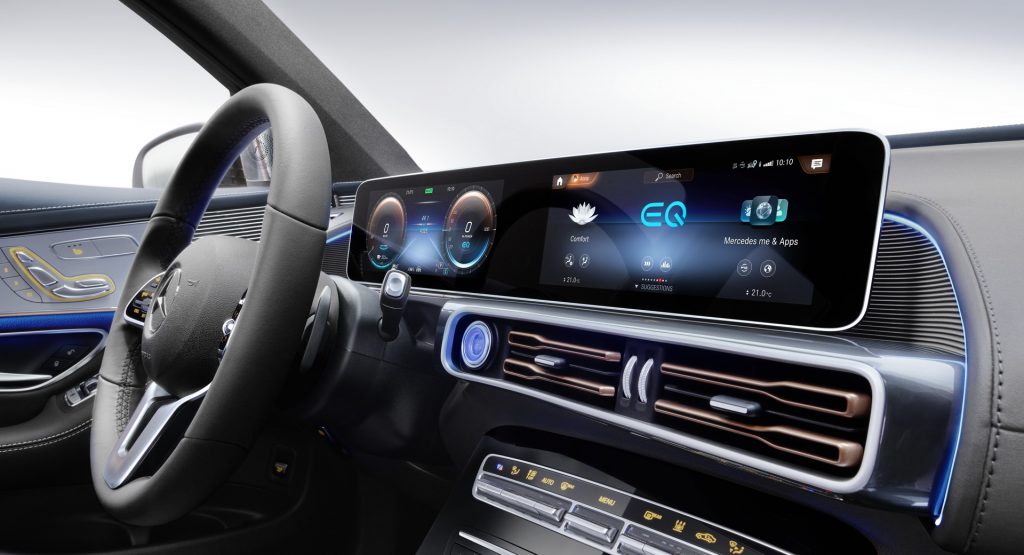After introducing its latest version of MBUX on the A-Class back in 2018, Mercedes has since updated pretty much every model with its latest-generation infotainment software.
One of its key features is voice control, and the German carmaker is rolling out an over-the-air update in certain markets that allows for more informal language to be used. Chinese customers, for example, can already book cinema tickets and order/pay for takeaway food on the go.
Why is this AI-tech so important when it comes to convenience? According to a recent report, the market for automotive AI systems will rise from £1.6 billion ($2 billion) today to £21 billion ($26.7 billion) within the next five years, which is a massive shift.
Read Also: Mercedes-Benz Lists Their Top Ten New Tech Features For 2019
Unlike some of their rivals, Mercedes did not look to partner up with a large tech company and decided to invest in its own personalized system, which is how MBUX was born. But could Mercedes end up making as much money from its AI systems as it does from selling cars?
This is what MBUX head of user interactions Nils Schanz had to say when asked that very question by Autocar:
“This is what we are aiming for, and this is why we are investing so heavily in MBUX. We can see there is huge business potential.”
Schanz went on to clarify that his job is to focus on the user experience and not revenue, and that Mercedes isn’t planning on charging owners for using their in-car services (like food ordering).
However, what they could do is sell access to the platform to third-party app creators.
“We can see how the business model could develop as a significant source of revenue, although right now there’s no revenue sharing model,” added Schanz.
The system’s voice function is a main focus for the company, because voice “is the safest way, because it keeps a driver’s hands on the wheel and eyes on the road.”
Still, Mercedes’ head of user experience design, Klaus Frenzel, told Autocar in a separate interview that “there’s not one perfect way of interacting with the car,” which means the carmaker will continue investing in multiple interfaces.
As for ordering and paying for food while driving being dangerous, Schanz stated that his company has “safety experts who are really looking at driver distraction and we have strict rules, so we can do nothing that distracts the driver too much.”
“The food-ordering experience has been optimised to reduce and simplify it so that it limits the distraction as much as possible. We’re always looking to make it possible to do anything without looking at the screen.”




